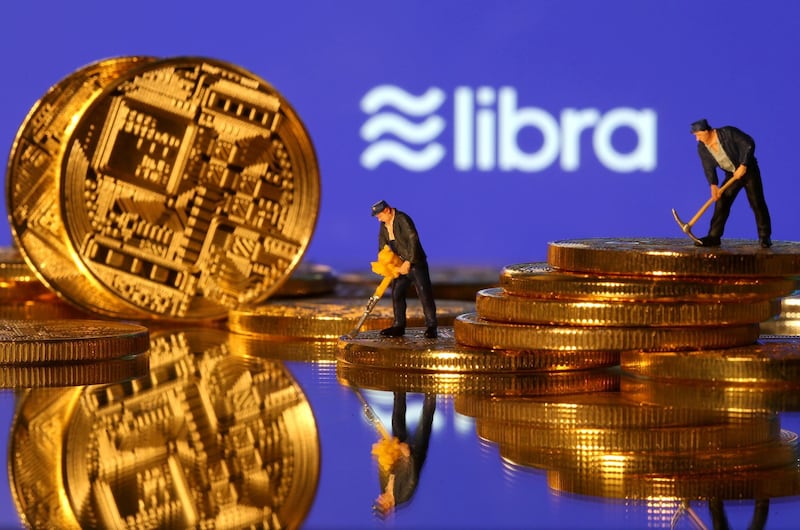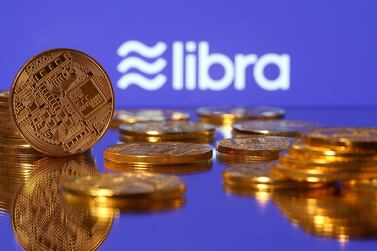PayPal is the first founding member to pull out of the Libra Association, a blow to Facebook's efforts to develop a digital currency.
"PayPal has made the decision to forgo further participation in the Libra Association at this time and to continue to focus on advancing our existing mission and business priorities as we strive to democratise access to financial services for underserved populations," the payments company said in a statement Friday.
"The type of change that will reconfigure the financial system to be tilted towards people, not the institutions serving them, will be hard. Commitment to that mission is more important to us than anything else," said Dante Disparte, head of policy and communications for the Libra Association, in a statement e-mailed to The National. "We're better off knowing about this lack of commitment now, rather than later."
Facebook did not immediately respond to a request for comment.
PayPal's announcement comes days after The Wall Street Journal reported that Visa, Mastercard and other financial partners that had agreed to back Libra are reconsidering their involvement as they do not want to attract regulatory scrutiny.
PayPal was absent from a meeting of the Association members in Washington Thursday, intensifying concerns that it might back away from the project. All of the other original partners were in attendance, according to people familiar with the situation, Bloomberg reported.
PayPal's departure is especially notable because David Marcus, the Facebook executive leading the Libra initiative, is a former PayPal president. Facebook’s blockchain team also has many former PayPal employees.
Libra and PayPal are similar in that they enable people to send money, as well as pay for goods and services online. However, Libra will run on a blockchain network backed by a pool of real assets and currencies.
“We remain supportive of Libra’s aspirations and look forward to continued dialogue on ways to work together in the future,” PayPal said on Friday. “Facebook has been a longstanding and valued strategic partner to PayPal, and we will continue to partner with and support Facebook in various capacities.”
The Libra Association now has 28 founding members after PayPal's exit. Among them are Mastercard, Visa, Uber, Lyft, Spotify and Coinbase.
The organisation has asked these members to reaffirm their commitment to the project later this month. Before Libra was unveiled, the companies signed nonbinding letters of intent.
Mr Disparte confirmed PayPal's decision, and said the first Libra Council meeting will take place on October 14.
"We look forward to the first Libra Council meeting in 10 days and will be sharing updates following that, including details of the 1,500 entities that have indicated enthusiastic interest to participate," the Libra Association said in a tweet.
Facebook plans to launch the digital currency in June 2020. The social media giant is looking at enrolling up to 100 companies in the venture and intends to release the currency in 12 countries. The group aims to raise as much as $1 billion (Dh3.6bn), with each participating company pledging an initial investment of $10m.
US officials and central bankers have expressed concerns about the safety of the network and the potential for illicit activity. Facebook chief executive Mark Zuckerberg last month told senators that the currency wouldn’t launch anywhere in the world without US regulators’ blessing.
This summer, PayPal was one of a number of companies that received a letter from the US Treasury Department asking for an overview of its money-laundering compliance programs and how Libra would fit into it.
In 2015, PayPal agreed to pay $7.7m to settle allegations that it violated US sanctions by processing payments for blacklisted individuals and organisations.








